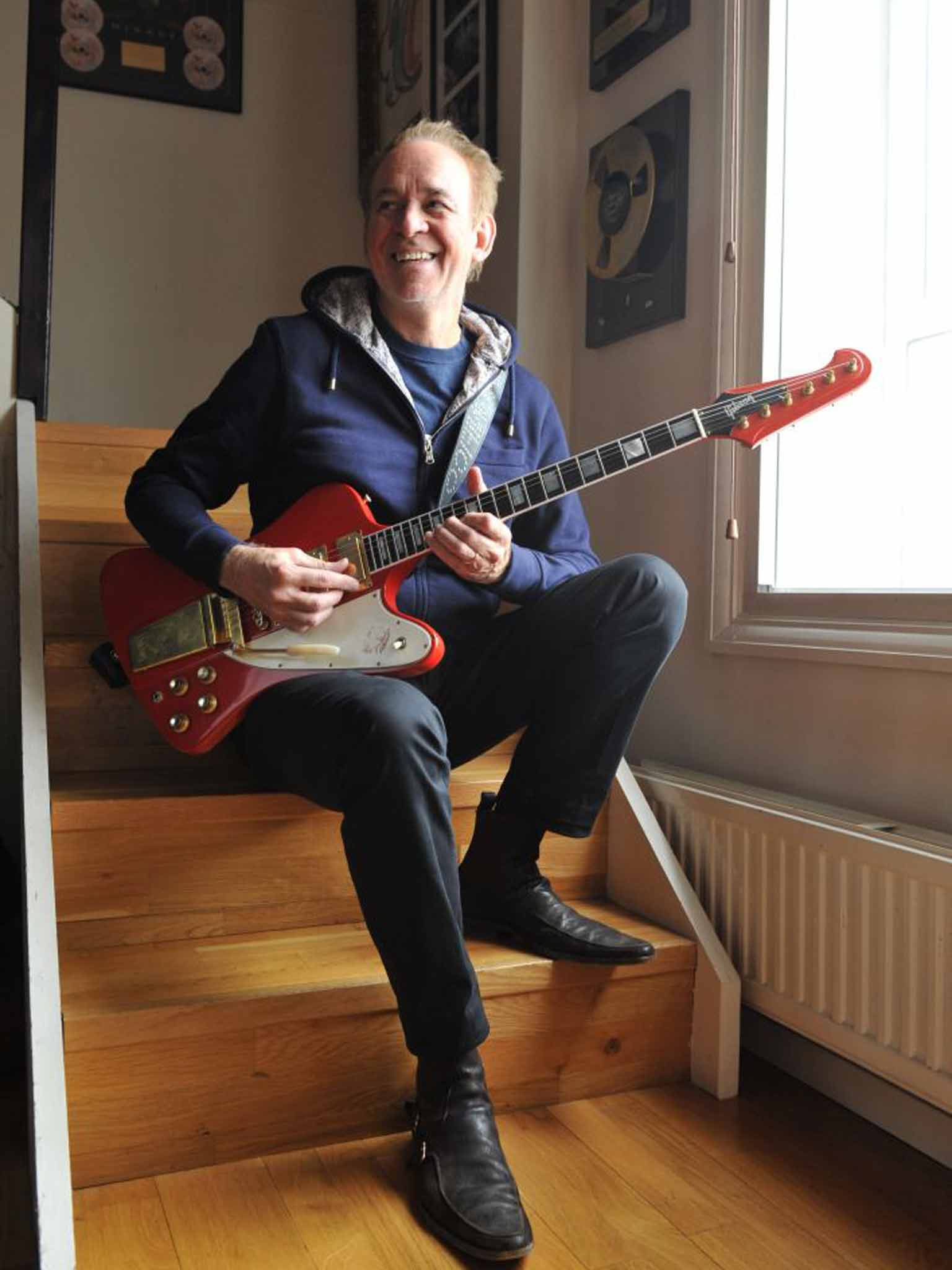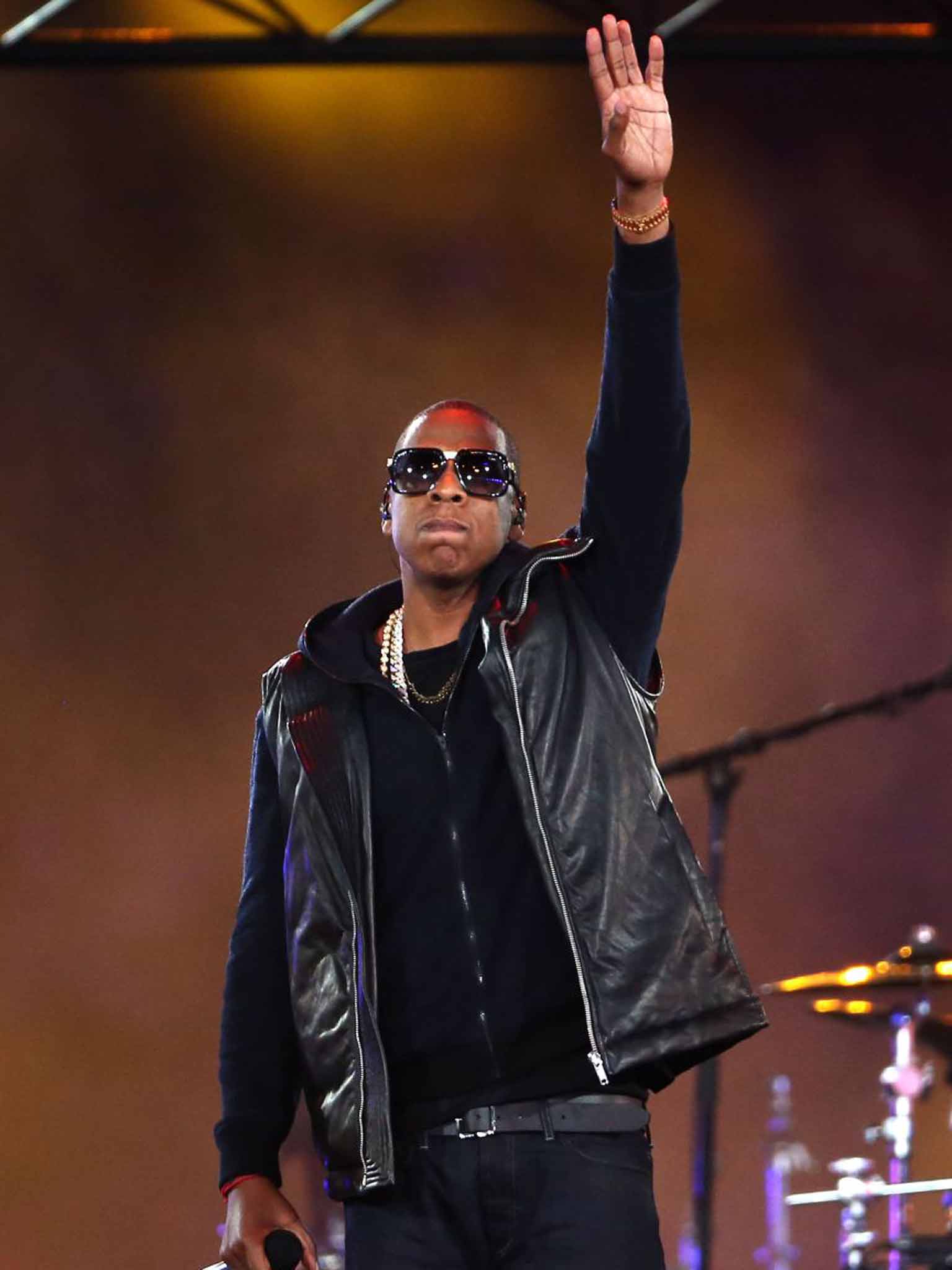Phil Manzanera on Jay Z, Kanye West and the riff that changed his life
The first thing you hear on Jay Z and Kanye West's 'Watch the Throne' is a remix of an 'obscure' 1970s guitar sequence. Now it's being played in films and commercials and Roxy Music's Phil Manzanera can't believe his luck

Your support helps us to tell the story
From reproductive rights to climate change to Big Tech, The Independent is on the ground when the story is developing. Whether it's investigating the financials of Elon Musk's pro-Trump PAC or producing our latest documentary, 'The A Word', which shines a light on the American women fighting for reproductive rights, we know how important it is to parse out the facts from the messaging.
At such a critical moment in US history, we need reporters on the ground. Your donation allows us to keep sending journalists to speak to both sides of the story.
The Independent is trusted by Americans across the entire political spectrum. And unlike many other quality news outlets, we choose not to lock Americans out of our reporting and analysis with paywalls. We believe quality journalism should be available to everyone, paid for by those who can afford it.
Your support makes all the difference.In 2011 I was driving down Ladbroke Grove towards the BBC offices with my son Charlie when the phone went. "Yeah, it's Roc-A-Fella records here calling you from New York," the voice said. "Just want to tell you that Jay Z and Kanye West have sampled your guitar on their new album."
"Ah, well yeah," I said. "I think you made a mistake." People always get me mixed up with Ray Manzarek from the Doors, so I thought that's what they'd done. To check it was definitely my riff, they played it down the phone to me, and it was a riff I'd written in 1978, for a tune called "K-Scope" [the opening track on the album of the same name] which I'd made when Roxy Music was on hiatus.
Even I had completely forgotten about that track, so I wondered how the hell did they find this riff from this obscure album? I looked into it and I found a film on YouTube of Jay Z and Kanye recording in a hotel suite in New York. There's a guy called 88-Keys who is friends with Kanye West and he looks round record shops, digging through old bits of vinyl. I think he was going through the bargain bin of a vinyl shop and came across it.
So Kanye says to 88-Keys, "Pop in, have a cup of tea," or whatever, and 88-Keys shows them 13 different beats. One of them is my guitar riff and that's the one they chose. It's an absolutely wonderful bit of bizarre serendipity. If I ever meet 88-Keys, I'll have to shake his hand and buy him a pint.

The genius thing is, they slowed it down. What nobody knows is that it's not just a guitar playing. I've got this huge harmonica: it's about a foot long and you blow this one note along with the first beat of every bar and it creates this weird sort of slightly sinister riff. When it's slowed down, that combined with that guitar low note creates this very special sound.
In the summer of 2011, just a couple of weeks after the phone call, Watch the Throne came out and it was a huge hit. It got to No 1; then it went platinum. "No Church in the Wild" is the first track on the album, so the first thing you hear on Jay Z and Kanye's album is my riff, and yet they probably don't even know who I am.
I'm owed six figures. Six figures plus, which is more than I've made in the past 15 years with Roxy. I haven't got paid yet but it really reassured me about all of my beliefs, why I'm doing what I'm doing and the power of music. Things come and go – fame, fortune – I'm not interested in that. I just do what I do because I love music but it felt like someone, somewhere up there in the ether, has said: "You know what? You've been doing stuff for ages, had ups and downs – you can have that now."
Marvin Gaye's estate has just successfully sued Pharrell Williams and Robin Thicke over "Blurred Lines", and personally I don't think that's the right judgment. I listened to the two things. The rhythm and the groove were very similar but the top line wasn't the same; the words and the chords weren't the same. One of the biggest issues at the moment in the music business is copyright and publishing. Copyright law is lamentably out of date, so the amount of money the writer gets is often a small fraction of what the record company get.
In my case, though, the record companies negotiated a great deal for me – but I'm a typical musician. If it was just up to me I probably would have said, just send us a couple of hundred quid – that's fine. Years ago a rapper called Ice-T called and said, "I've sampled your thing," and I just said , "Ah yeah brilliant, thanks, bye!" I had no idea you could get some money from it. I don't know what happened with that, I'll have to Google it. I'll add it to my list.
Enjoy unlimited access to 100 million ad-free songs and podcasts with Amazon Music
Sign up now for a 4 month free trial (3 months for non-Prime members)
Enjoy unlimited access to 100 million ad-free songs and podcasts with Amazon Music
Sign up now for a 4 month free trial (3 months for non-Prime members)
Obviously I need a manager. I never wanted one because I didn't want someone telling me what to do. The great thing about being in a band like Roxy Music was no one ever told us what to do. I have said over the last year I thought our job was done with Roxy Music. There are no plans to do anything at all, but if I called up Bryan Ferry tomorrow and said I've got this great tune, how about we play a thing, then whatever's gone down, we'd be free to do it – and we would.
Anyway, after Watch the Throne went platinum, I put a Google Alert on "No Church in the Wild" and it kept popping up: in the Denzel Washington film Safe House, and then in the Dodge commercial that was played during the Superbowl. I was thinking, crikey, something's going on up in the ether. Whoever you are up there, thank you, thank you, thank you! I'll just keep my head down and keep playing guitar.
Then in 2013 it was in The Great Gatsby. I was thinking, this is just ridiculous, how the hell did that happen? And it turns out while Jay Z and Kanye West were doing the track in New York, Baz Luhrmann popped in, as he does, with Leonardo DiCaprio, just at the moment they're recording "No Church in the Wild", and they ended up using it in the film.
Over the next few years I started hearing that riff everywhere, on commercials and TV shows. At the moment, it's in the advert for the Audi Quattro. On Spotify it's had 57 million hits. It's going to keep going. It's wonderful.
But I tell you the weirdest thing. We went to Burma a month ago. We were in the middle of the country, up in the hills in Kalaw where Brits go to cool off. It's beautiful up there, lovely people, thousands of pagodas and temples. We'd come back from a 10km trek and went to lie down for a bit. So we were lying in bed watching Silent Witness and suddenly it's that riff! They'd cut the whole four-minute opening sequence to "No Church in the Wild" and we're sitting there in Burma thinking, Jesus! What's going on? What does it all mean?
That riff is following me. It's like a little friend following me around. I've done a version of it on my new album. I thought, just for a laugh, let's record a version of "No Church in the Wild", but get rid of the Jay Z and Kanye bits! It's a bit cheeky but what the hell. We took the soul, groovy elements and recorded it live.
The ironic thing is I played that riff five times in 1978 and I've got to learn to play it now. There are thousands of YouTube tutorials telling you how to play it and they're all playing it wrong! Because when Jay Z slowed it down, they put it in E-flat. But for a guitarist E-flat is so hard to play. So there are people from the Berklee College of Music, incredibly technical people, playing it. And I thought, no, I couldn't play that. So I've done a little YouTube clip showing people how to play the definitive version. It's terribly easy if you play it in A.
Phil Manzanera' s album 'The Sound of Blue' is out now
As told to Emily Jupp
Join our commenting forum
Join thought-provoking conversations, follow other Independent readers and see their replies
Comments